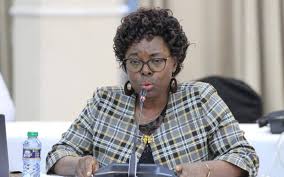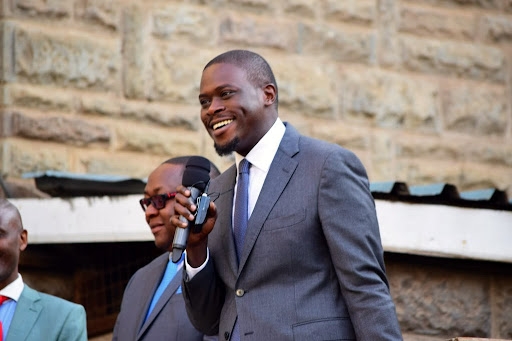

A new report from the Controller of Budget has revealed government agencies spent Sh6.3 billion on hospitality items, mainly tea and mandazis, during the financial year ending June 30, 2025.
This was despite directives by President William
Ruto for fiscal austerity and radical cost-cutting measures to help the country steer
the difficult economic situation that has persisted since the Covid-19 era.
This means the government has been spending Sh17.2 million daily on refreshments and entertainment.
The huge expenditure shows there has only been a marginal decline in the hospitality spend, despite Ruto's tough talk on austerity.
Last year, the government spent Sh7.6 billion on hospitality.
State House
recorded the highest hospitality expenditure of Sh1.15 billion—translating to
Sh3 million daily—followed by the Judiciary at Sh514.65 million—about Sh1.5
million daily.
State House plays
host to high-level diplomatic engagements, political gatherings and has a
stream of visitors owing to the nature of the President’s responsibilities.
The State
Department for Internal Security and National Administration, according to the report
by Controller of Budget Margaret Nyakang’o, was the third highest Sh490.98 million—about Sh1.3
million daily.
She further raised concerns that state officers were still splurging billions
on travel, both local and domestic, in violation of circulars by the National Treasury and the Head of Public Service.
It emerged President Ruto’s office and State House’s spending on domestic travel went
up by about Sh900 million, hitting a first-time high of Sh2.5 billion in the
period under review. State House spent Sh2.3 billion while the Executive Office
of the President spent Sh224 million.
While OP’s foreign
travel went up by Sh20 million, State House’s reduced by Sh109 million to stand
at Sh189 million compared to last year when it was a few thousand shillings
shy of Sh300 million.
Deputy
President Kithure Kindiki’s local travel spend, however, went down to Sh228
million compared to last year’s Sh441 million (the time of his predecessor
Rigathi Gachagua).
DP’s expenditure
for foreign trips also went down from last year’s Sh114.9 million to Sh22
million in the period covering June 30, 2025, and so was the office’s hospitality
budget.
The CoB report
shows the DP’s office expended Sh379 million, a reduction of almost 50 per
cent compared to last year’s Sh746 million.
Overall, the
expenditure performances by the ministries, state departments and agencies
(MDAs) present a mixed bag.
While some
expenditures went up drastically, like that on salaries, which rose by Sh47
billion, others have gone down tremendously by hundreds of millions.
Salaries
(minus allowances) shot to Sh645.5 billion in the period under study from the
previous year’s Sh597 billion.
General supplies
went up by Sh340 million, at a time communications expenses went down by Sh200
million.
Domestic
travel expenses also reduced by Sh100 million, while foreign trips cost
taxpayers Sh1.7 billion less, compared to last year when taxpayers spent Sh9.1 billion on foreign trips by government officers.
Total travel
expenditure was Sh25.46 billion, compared to Sh27.34 billion recorded in 2023-24; comprising domestic travel at Sh18.05 billion and foreign travel
at Sh7.40 billion.
The National
Assembly recorded the highest expenditure on domestic travel, recording Sh4.68
billion, which is attributed to the nature of work by the members of Parliament.
For foreign
travel, the State Department for Foreign Affairs recorded the highest at Sh2.52
billion, which is attributed to their nature of activities, seconded by the
National Assembly at Sh1.99 billion and followed by the Senate at Sh633.49
million, respectively.
Nyakang’o
has in the report cited the violation of circulars by the government, which suspended
non-essential foreign travel.
In the order, Head of Public Service Felix Koskei set caps for delegate sizes and the period of travel to seven days, inclusive of the travel dates.
Despite the clampdown
on benchmarking and study visits, trainings and capacity building initiatives,
state officers did not rest easy and continued to splurge billions.
Nyakang’o
wants the government to undertake fiscal consolidation measures as directed
from time to time.
“This
includes reducing non-essential expenditures such as foreign travel and
benchmarking visits. This will help further reduce the budget deficit,” CoB
said in the report seen by the Star.
Printing and
advertising costs went up by Sh500 million, so was specialised equipment
expenses, which increased by Sh3.7 billion to hit Sh12.3 billion.
Details
further show the government spent more money on fuel in the year under
review, the budget hitting Sh4.3 billion from Sh3.4 billion posted in the 2024
spending period.
Insurance
costs went down by Sh2.2 billion, while training expenses went down by Sh1
billion, yet motor vehicle maintenance costs were up by Sh600 million.
There was no
change in other maintenance expenditures as well as rentals, albeit they
gobbled up Sh1.7 billion and Sh9.6 billion respectively. Fuel expenditures shot up
by Sh900 million.
The report
details how the government is living from hand to mouth to meet the
budget demands, and relying on local banks to meet the arising deficits.
Public debt
stood at Sh11.7 trillion as of June 30, 2025, of which domestic debt accounted
for Sh6.3 trillion (54 per cent), against MPs' recommendation for 50:50 sharing.
As a way out, Nyakang’o has asked the government to consider increasing domestic tax collection.
“The government should strengthen tax collection and administration
measures,” she said.
“This may
include decisively dealing with corrupt practices that lead to the loss of
collected revenues. This will improve revenue collection and enhance the
government’s ability to finance the planned expenditures from its revenue,” the
budget boss said.
The report
emerges at the height of fiscal challenges for the country, including a budget
deficit projected to increase to 4.6 per cent of the GDP (about Sh900 billion).
Nyakang’o
has further flagged the government’s challenge with settling pending bills,
which were about Sh530 billion as of June 2025. “The pending bills have hindered
budget implementation.”
To address
the challenges, the controller of budget recommends that the National Treasury
fast tracks the settlement of verified pending bills.
To curb
over-expenditure of budget lines, she said the National Treasury should ensure the expenditure incurred is considered during budget revision.
The budget
boss further wants the National Treasury to liaise with respective accounting
officers to regularise expenditure overruns before the closure of the financial
year.
The
disclosure comes amid the aura of agitation as witnessed in the recent youth-led
protests in demand for greater
accountability and reduction of government opulence.
Protesters
had specifically cited excessive spending and wastage in government operations
as key grievances.
This ultimately
forced the Ruto administration to abandon its 2024 tax proposals and implement
cost-cutting measures.
INSTANT
ANALYSIS
The discrepancy between the
government's austerity rhetoric and the continued high expenditure on
hospitality items highlights the implementation gaps in fiscal governance. As
the Kenya Kwanza administration moves forward with its cost-cutting agenda, the
controller of budget’s report serves as a critical reminder that visible
commitment to fiscal discipline must extend beyond high-profile announcements
to encompass all areas of government spending, including seemingly minor items
like tea and mandazi that collectively amount to significant sums.














